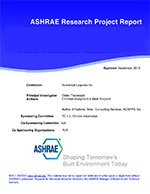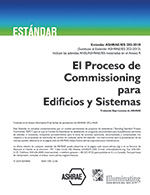Description
Biological contamination in the indoor environment is a major health concern. In fact, indoor air can be a greater environmental hazard than outdoor air — indoor air pollutant concentrations have been found to be 10 to 100 times higher than the outdoor air (Berry 1992). In addition, individuals, particularly the very young, old, or chronically ill, may spend as much as 90% of their day indoors (Ott 1988). Biological agents present risks of infection, toxic or chemical exposures, or allergic sensitization. Immunologically mediated diseases induced by environmental biocontaminant exposure include asthma, allergy, and hypersensitivity pneumonitis (Weissman and Schuyler 1991).
The objectives of this work are to:
1. Characterize the indoor allergens and biological toxins described in the medical and microbiological literature.
2. Describe the sampling methods currently used to quantify and identify these allergens and biological toxins.
3. Evaluate the filtration techniques currently available for removing the biological particles of concern.
Product Details
- Published:
- 1994
- Number of Pages:
- 194
- File Size:
- 1 file , 5.2 MB
- Product Code(s):
- D-RP-760




